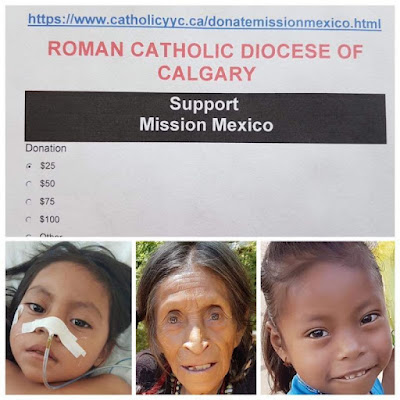In 2024, six students receiving a bursary from Mission Mexico graduated from different universities in Mexico: These included three teachers, an accountant, a lawyer, and a nurse. In August of this year, Mission Mexico awarded bursaries to the following nine students from the mountains of Guerrero. I hope that the Mission Mexico supporters are proud to be assisting such incredible young people, living in such impoverished conditions, in the pursuit of their dreams. Hopefully, we can support even more young people in the future.
NANCY PEREZ MENDEZ
I am Nancy Abigail Perez Mendez, I am 19 years old, I am originally from Zapotitlán Tablas, Guerrero, in the town of Las Minas. I just finished high school at Bachillerato Champagnat de la Montaña. My family is made up of 8 people, my grandfather, an aunt, my mother, three little brothers and me. Currently, I only have my mother, she is the one who is in charge of everything since my father abandoned us when we were little and he has never supported us in anything; even if he sees us, hedoesn't even talk to us. I speak Tlapaneco. It was in high school that there emerged the feeling of wanting to help others. That is why I also chose that career because I trust that it will give me more opportunities, and these will allow me to help others, just as they helped me. I have gotten good grades at school because I feel that it is a way to thank my mother for everything she does for me. I am studying Economics and International Finance at the Marist University of Querétaro, since I am interested in knowing how the market works. I am very attracted to being able to coordinate companies and I even want to have my own company. I have always had a great inclination for business, and this career will allow me to achieve most of my goals. My degree lasts four years. At the university, when I finish, I must provide a service by applying my degree. When I finish my degree, I hope to have a job in which I can have a apply everything I know. I also want to have my own business. I ask for this support from Mission Mexico because I do not receive any other support from the government or from another institution. My family and I need support because my mother is the only one who helps me with these expenses, and she also has to cover more expenses regarding my little brothers (one is in high school, another in middle school, and the other in elementary school).
NANCY ABIGAIL PEREZ MENDEZ
2. KARLA RAMIREZ GUZMAN
• Karla Jaqueline Ramírez Guzmán
3.
ANGELY SALMERON OSCURO
My name is Angely Valeria Salmerón Oscuro, I am 18 years old, originally from the indigenous municipality of Ayutla de los Libres, Gro. I am currently studying at the Universidad Autónoma Metropolitana - Unidad Xochimilco, in my first year of a Medicine degree. I am part of a family with a mother, father and two children, I have always liked poetry and oratory, practicing it since the 2nd year of preschool. I am in my first year of Medicine, and I chose this 6-year profession because since I was little, I have been interested in helping others. My project upon completion is to specialize so that I can return to the Mountain area of Guerrero, the place where I grew up, to be able to support mainly the indigenous population with scarce economic resources that has limited access to public health services. I am making this request to obtain help from Misión México, since these months it has been difficult for my family to pay most of the expenses, since my mother is a housewife, and my father does not have a good salary. Thank you for considering this request.
Sincerely,
Angely
Valeria Salmerón Oscuro
4.
ARACELI PALATZIN GALVEZ
Araceli
Palatzin Gálvez
IRENE LOPEZ ORTEGA
Hello, my name is Irene López Ortega, I am eighteen years old, I am from Tlaquetzalapa, municipality of Copanatoyac, Gro. I finished high school at the Champagnat High School of the Montaña. My family is small, I only have my mother, since my father passed away 3 years ago. My native language is Nahuatl. I rent in the city of Tlapa with my mother, so that I can study here. Ever since I was studying high school, I worked during the holidays to cover some school expenses. I am studying Environmental Engineering at the TecNM Montaña Campus in Tlapa de Comonfort Gro., I want to be a professional capable of identifying and planning solutions to environmental problems ensuring protection, conservation and improvement of the environment. I had very few opportunities to go elsewhere to study another career, but I did not sit idly by, and I looked around and found the Technological Institute, a promising institution with very well-established careers. I hope to have the advantage of studying in the mornings and working in the afternoons. The career lasts 5 years, and there is a time of practice/service which can be during or after the career, depending on the circumstances. I hope to learn to be able to manage projects among many other things to take care of the environment. I do not receive any support from the government or other entity, so this bursary from Mission Mexico would be very helpful to me. Studying a career is expensive and complicated but not impossible, I have many goals in mind. Thank you in advance for considering my request.
Sincerely,
Irene López Ortega
6.
FLOR SOLANO CANTU
Teachers College of the Mountain, in Tlapa. My family comprises my parents and one older brother. All of us in my family speak a native language called Mixteco or Tuún savi. I chose kindergarten education because in high school we studied the importance of a good initial education for children, and I did three days of service in a kindergarten, and I loved it. The career lasts five years and includes practice teaching during each semester. I hope to be a professional teacher and share my knowledge with children here in the Mountain of Guerrero. My parents rent a space to sell clothing, but the business is not going very well. For that reason, a bursary from Mission Mexico would greatly assist me in transportation, school supplies, etc. I thank you very much for considering this request for help.
Flor Solano Cantu
7.
VIDAL MARTIN DIAZ
My name is Vidal Martin Diaz. I am 18 years old, and I just completed high school in my home village of Juanacatlan, Guerrero; I was part of a graduating class of only five students. My family is made up of ten people: my parents and eight children. The people in my village speak Tlapaneco, but I have learned Spanish as well. I will be the first member of my family to go to university. I wrote an entrance exam, and I was accepted in the career of Architecture in the Autonomous University of the State of Morelos, located in Cuernavaca. I chose this university because I have relatives living in Cuernavaca, and they will allow me to live with them. I have dreamed of being an architect since I was 12 years old. The career involves 5 years of study, and afterwards I hope to find work with a business or a government agency. My other family members say that they will support me in my studies, but I know that just making ends meet is often difficult for my family. For that reason, I dare to request a bursary from Mission Mexico. Hopefully, any assistance I receive from you, I can repay someday by helping other needy students. Thank you ahead of time for considering this request.
Vidal Martin Diaz
8.
VANESSA RODRIGUEZ ESTEBAN
Respectfully,
Vanessa Rodríguez Esteban
CRISANTA MORALES NARCIZO
Good morning, my name is Crisanta Morales Narcizo. I am 21 years old, and I am originally from Santa
Anita, in the municipality of Copanatoyac, Guerrero, Mexico. I speak an indigenous language called Mixteco in Mexico, I studied at the Champagnat de la Montaña High School, located in the town of Potoichan. My family is made up of my mother, father, 5 brothers and 6 sisters; with me, we add up to 14 members in the family. My parents work in the fields planting corn and beans for family consumption. Of the 12 siblings that we are, I am the only one who has the desire to continue with university studies, but due to lack of finances in the family, I have not been able to do so; so, it has been two years since I finished my high school. I am currently in the city of Iguala de la Independencia in the state of Guerrero, Mexico, studying the first semester of the Agronomy degree at the Faculty of Agricultural and Environmental Sciences, which will last 4 and a half years of study, from 2024 to 2028, then six months of professional internship. This degree is very interesting to me, since through this degree I will be able to acquire in-depth knowledge about agriculture, proper management of good planting practices, and in this way take better advantage of corn and bean production, which I previously mentioned that my family is dedicated to. I am writing this letter to Mission Mexico, to request a bursary to help pay my financial expenses on rent, transportation, food, school supplies, and study trips during my time in the degree. My monthly budget for expenses amounts to approximately 4,500 pesos a month, and this is a very difficult challenge for my poor family.
Crisanta Morales Narcizo





























































